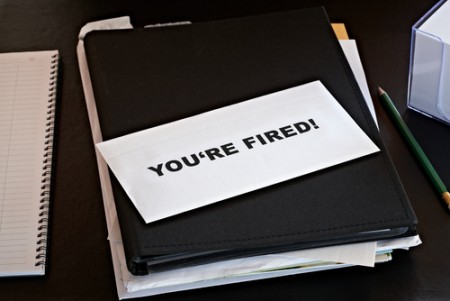Yale prof claims she was wrongly fired after tweeting about Trump, Dershowitz, shared psychosis

Image from Shutterstock.com.
A law and psychiatry professor is alleging that she was fired by the Yale School of Medicine because of her critical comments about former President Donald Trump’s mental health and the likelihood that Alan Dershowitz had taken on “Trump’s symptoms by contagion.”
Bandy Lee alleges in a March 22 lawsuit that she was fired for exercising her First Amendment right to free speech when she tweeted, in violation of Yale University’s contractual obligations and an implied covenant of good faith and fair dealing. Lee was an assistant clinical professor in the medical school’s law and psychiatry division.
Dershowitz, a Harvard Law School professor emeritus, had complained to Yale after the tweets, according to the suit, filed in Connecticut federal court. Dershowitz had defended Trump at his first impeachment trial.
Reuters, the Yale Daily News and Law360 have stories on the lawsuit, which was also noted in this tweet. Dershowitz is author of Cancel Culture: The Latest Attack on Free Speech and Due Process.
Lee had opposed the American Psychiatric Association’s recommendation that its members refrain from commenting on public figures, even if they don’t offer a diagnosis, the suit says. She wrote a book called The Dangerous Case of Donald Trump: 27 Psychiatrists and Mental Health Experts Assess a President.
The book claimed that Trump’s mental health was affecting the mental health of the people of the United States, creating a grave risk that democracy would be undermined and the country would become involved in violence. Lee said she had experience with the shared psychosis phenomenon by studying the influence of symptomatic individuals on families and gangs.
Lee had responded when Richard Painter, a professor at the University of Minnesota Law School, tagged her in a tweet noting the similarities to Dershowitz’s claim about his sex life and Trump’s claim about his phone call to the Ukrainian president.
Dershowitz was interviewed in July 2019 following revelations about his ties to financier and convicted sex offender Jeffrey Epstein. Dershowitz said he had a “perfect, perfect sex life.” Trump said he had a “perfect conversation” and a “perfect call” with the Ukrainian president.
In response to Painter’s tweet, Lee said “Alan Dershowitz’s employing the odd use of ‘perfect’… might be dismissed as ordinary influence in most contexts.” She added that “given the severity and spread of ‘shared psychosis’ among just about all of Trump’s followers, a different scenario is more likely,” and that scenario was “that he has wholly taken on Trump’s symptoms by contagion.”
After the January 2020 tweet, Dershowitz complained to Yale that Lee had publicly diagnosed him as psychotic, based on his legal and political views, without ever examining or meeting him, according to the suit. He said he was formally asking the university to discipline Lee and to investigate whether she violated any school rules.
Lee was fired from her faculty appointment in May 2020.
The suit says Lee’s speech was protected under the First Amendment because she was “acting on a citizen’s duty to contribute her gifts to society, including her professional training and knowledge, and not as a psychiatrist under private employment.”
Dershowitz is a not a defendant in the suit. He told Reuters that Lee was fired because of her “completely unprofessional, unethical and unacademic” conduct. He also said he had no contact with Yale after the initial complaint.
Dershowitz also spoke with the Yale Daily News.
Lee “credits me with getting her fired,” Dershowitz said. “I’m not that powerful. I am pleased with the fact that I brought to Yale’s attention the facts that demonstrate her deviation from professional norms. The facts are the facts, and Yale acted on the documented facts, not on my opinion.”
A Yale University spokesperson told the Yale Daily News that Lee was a voluntary faculty member, and that “Yale does not consider the political opinions of faculty members when making appointment decisions.”
Write a letter to the editor, share a story tip or update, or report an error.


